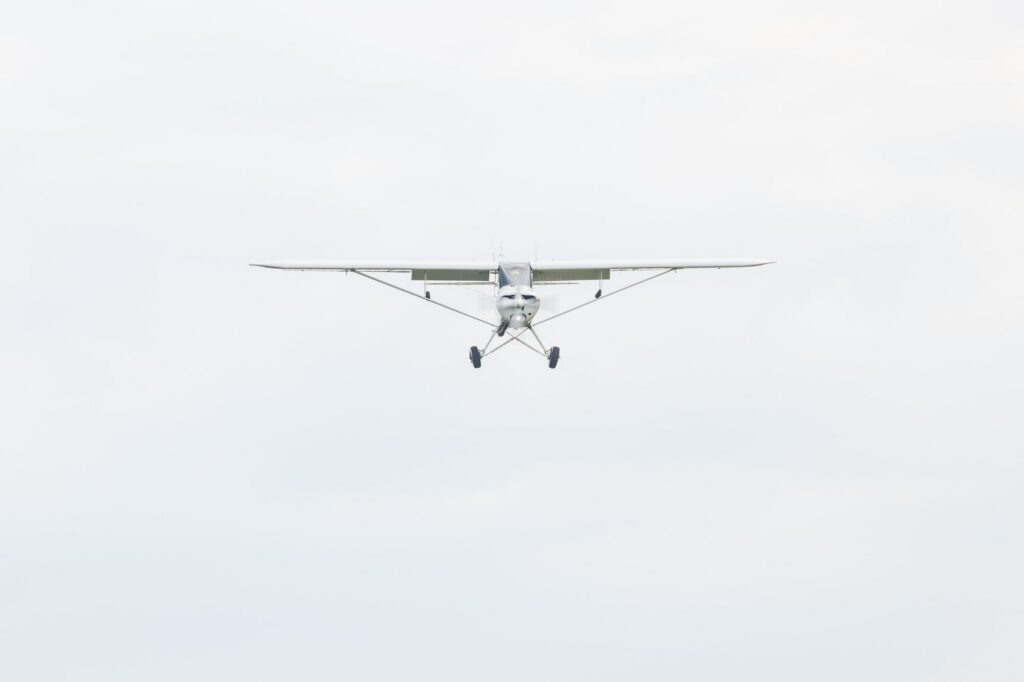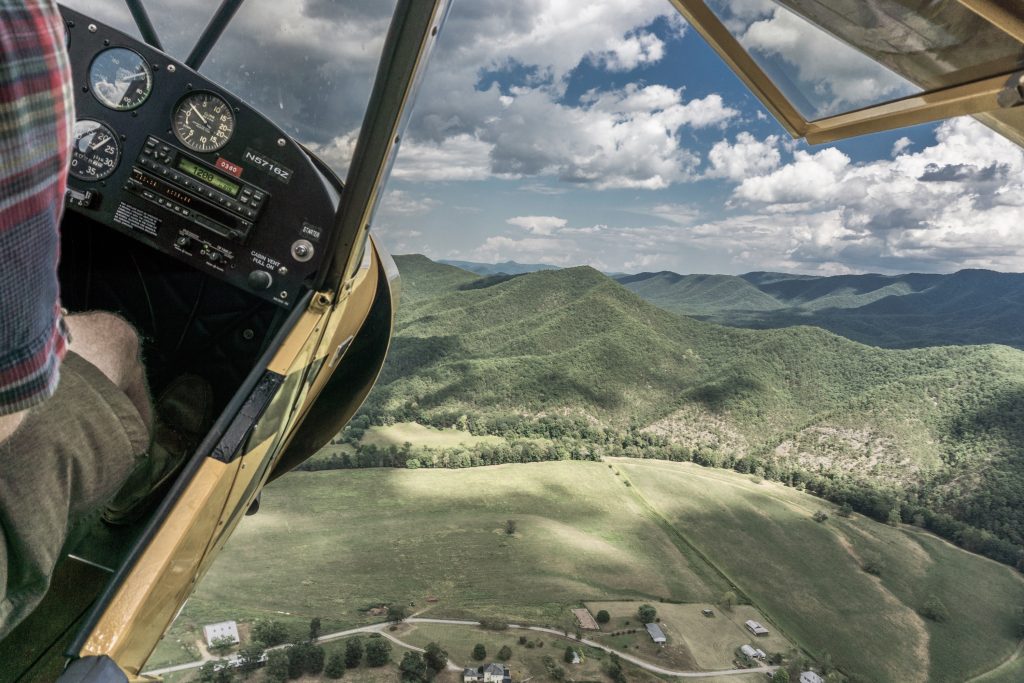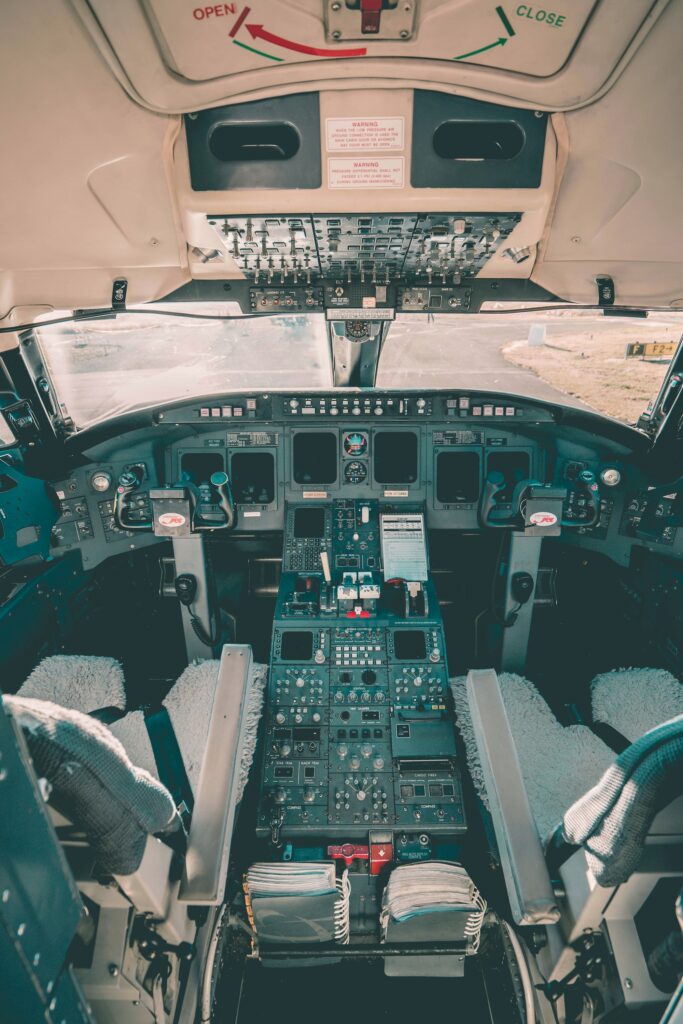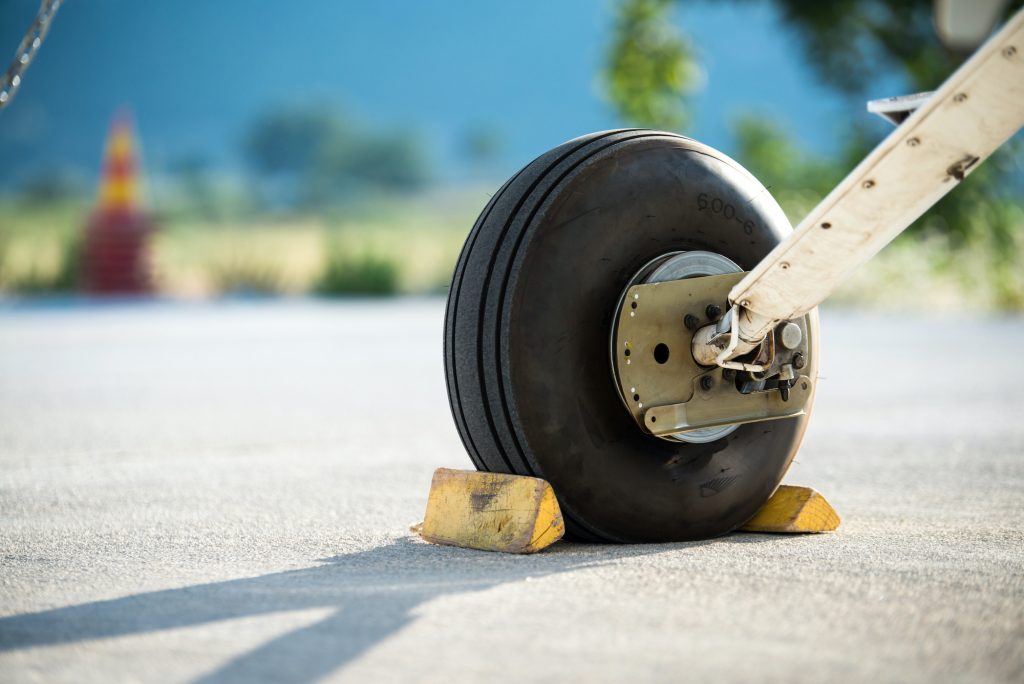
Simple Steps to Finding a Great Flight School
Simple Steps to Finding a Great Flight School
Flight training is a significant investment of time, money, and energy, so students should put in the work to find the right one. Let’s discuss the factors to look for, and red flags to avoid, when looking for a flight school.
Instructor Experience
Instructor experience is important: personality is more important.
One of the first things new students consider is instructor experience. Instructor experience matters, but it isn’t the be-all end-all for flight training. The situation is a little more nuanced than that.
Certainly an experienced instructor will come with several benefits: First, they have seen a thing or two before. As a result, they will probably have a better strategy for dealing with the particular struggles you inevitably face in training. Everyone hits training plateaus — certain stages where progress halts temporarily — and experienced instructors have spent more hours anticipating and pushing through these learning plateaus. For example, if a student is struggling with landings, an experienced instructor would be more likely to change tactics, perhaps demonstrating a landing themselves or explaining the aerodynamic concepts differently, whereas a new instructor may be more likely to simply repeat the current process.
An experienced instructor is often a better judge of whether the two of you are compatible in the student-instructor relationship. Occasionally two personalities are simply not well-suited to the learning environment, and there’s nothing wrong with that. Experienced instructors may be quicker to recognize this and pair you with an instructor better suited to your learning style.
Occasionally aspiring pilots discover that they are not suited to flying. This is relatively rare, and not something to worry about. But, on the off-chance that is happens, an experienced instructor will probably recognize it sooner and hopefully tell you so you don’t waste your time and money.
Now, it’s worth stating that a lot of the benefits experienced instructors can bring to the table are also dependent on their personality type and specifically whether they are humble enough and whether they care enough to use their experience. Unfortunately, flying experience often doesn’t translate to wisdom as an instructor or as a person. There are plenty of awful instructors with decades of experience. They can fly a plane, but they don’t care about their students. Do not evaluate instructors by their experience alone. Personality is equally, if not more, important.
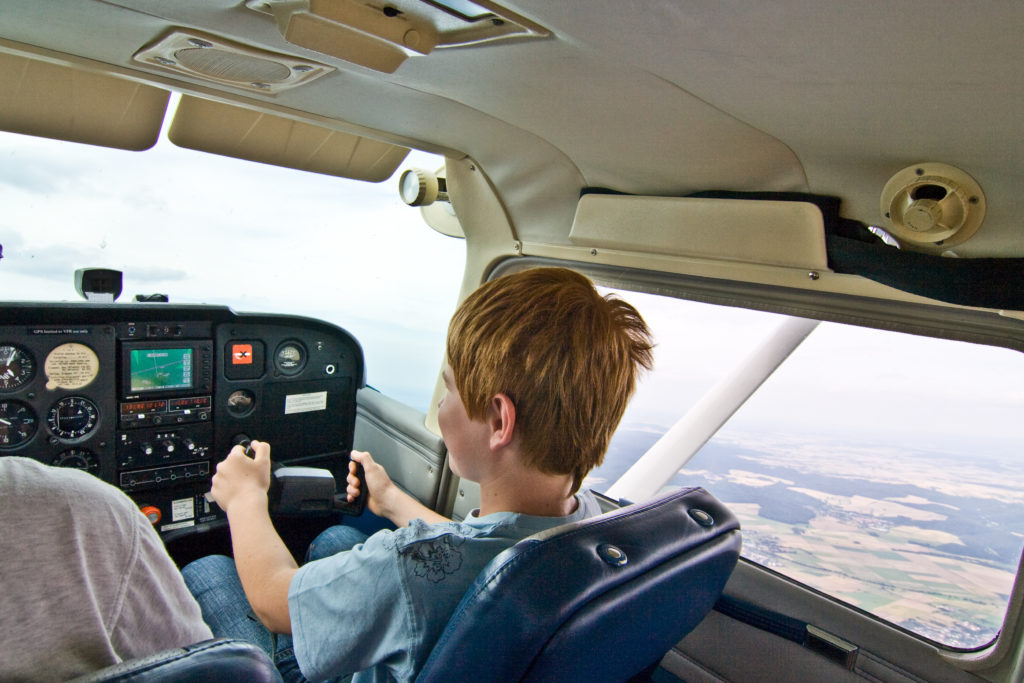
Seek an instructor who cares, who is down to earth, and who is passionate about flying and teaching. You may have very little experience around airplanes, and it is very hard for a non-pilot to evaluate a pilot’s flying skills, but many aspiring pilots can still be good judges of character. Find an instructor with good character and avoid settling for someone lousy simply because they have experience.
Less experienced instructors come with advantages too. Often, they are young and energetic and willing to work as hard as the student to provide the best instruction they can. Many do not hesitate to reach out to more experienced instructors for help when they need it. When less experienced instructors seek out help, it rarely pertains to the flying itself: more often it’s seeking out new ways to explain concepts or help in evaluating student progress to ensure high quality of training.
While there are instructors with poor flying skills, it is uncommon and it’s not something you should be worried about as a prospective student. Focus on the learning and personality compatibility. Often, younger students benefit when learning from younger instructors, who have a better understanding of their life experience and knowledge outside of flying.
When seeking an instructor, look for personality and learning-style compatibility more than strict flight experience.
Ideally, students should seek a flight school with a strong team of instructors, as opposed to just one. A team of instructors can work together to combine strengths, providing students with higher quality training than a single instructor might provide. This is particularly true if the primary instructor is relatively inexperienced. It doesn’t take a village to raise a pilot, but it can help!
A team of instructors, as opposed to just one, is also advantageous if your primary instructor is sick or goes on vacation. Someone else can substitute so that your training doesn’t also take a vacation. In flight training, wasted time is wasted money.
Each instructor, regardless of experience, will have different teaching styles, and each students has different learning styles. If you know your learning styles, seek instructors who mesh with that: but keep an open mind. You might find your learning style, when it comes to flying, is different than you thought.
While no student or instructor is the same, most students benefit from instructors who give good briefings and debriefings, allow their students to safely make frequent mistakes, explain concepts in different ways, and use well-timed demonstrations to illustrate proper technique.
The best instructor you could find would be someone with experience, a personality that meshes with yours, a normal-sized ego, who is filled with passion about teaching and is part of a larger group of instructors who work together to make great things happen for their students.
The Management
Now that we’ve looked at instructors, the next place to look is the management team. Invoicing and scheduling will likely involve them, so they are going to be a significant part of your training experience. Furthermore, they dictate much of the instructors’ lives, who in turn dictate a lot of your training experience.
How are instructors treated? Are they paid fairly for the time they spend with you? It might seem nice to get an extra discount that comes with policies like not paying instructors for briefs and debriefs, but it usually circles back to hurt the student in the long run. Often, you get what you pay for.
Some schools, particularly large “pilot-mill” schools like ATP have a policy of not paying their instructors for time spent on the ground. A huge part of the training experience is the briefing process (where we lay the groundwork or what we will be in the air) and the debriefing process (where we reflect on what we did, what went well, and what needs improvement).
If an instructor is not paid for time briefing and debriefing or teaching you ground topics, you are very likely going to be short-changed when it comes to these extremely important parts of training.
How does the flight school handle scheduling? Do they have an online scheduling service that you can access from home? Or do you have to call in and schedule with a manager who then fills out a paper schedule? Saving a couple hundreds bucks a month on scheduling is not a great sign for a flight school.
How often are flights cancelled? Be especially aware of flights that are canceled for preventable reasons like regularly scheduled maintenance. Dealing with poor scheduling is frustrating at best and can delay check rides at worst, costing you time and money. Yes, stuff happens, and sometimes even great scheduling departments will mess up. But be wary of a flight school where those kind of things are routine.
How does management treat you? Do they take down your email and then send you a PDF and ask you to drop a $5,000 deposit? Or do they take time to answer your questions and talk about their program, instructor team, and fleet? If you are treated like a number from the start, it’s unlikely to change in the future. Great flight school organizations share a level of stoke throughout the company! Even the non-pilots will be excited about new students’ achievements. That’s a great quality you want to see in the organization!
The Fleet & Maintenance
Learn about the fleet. How many airplanes do they have? Are there multiples of the same make and model? If you have a preferred airplane type (e.g. high wing, low wing, or a particular make or model) do they have it? If so, how many do they have? If one airplane has to be grounded for a month for repairs because a pilot accidentally taxis into a light pole, are there other similar models you can use? Or will you be forced to change make and model?
Consider fleet size and the maintenance team.
Who performs the maintenance on the fleet? Time permitting, meet the mechanics. Even if procedure doesn’t require students to interact directly with mechanics, you should feel comfortable with the maintenance team because you will likely bring maintenance items to their attention during your training. Furthermore, skilled mechanics are a wealth of information about systems. Great maintenance teams want to teach students too because it means their airplanes get treated better.
Instructors may also use occasional trips to the maintenance hangar to reinforce lessons about systems. Nothing helps with understanding a system like getting your hands on it! When Andrew and I went through our initial training at large flight schools neither of us even saw basic airplane components in the maintenance shop. Our learning was hands-off. It was a disadvantage, and we made a concerted effort as instructors to avoid putting our students in a similar situation.
If most students have never met a company mechanic or seen the maintenance hangar that’s a pretty big red flag. Honesty is important in the flight training process — if a flight school is hiding something from you that’s not a good sign.
The Culture
What’s the flight school culture like? Ideally the students are happy and hardworking, the instructors are humble and passionate, and the desk and maintenance staff are enthusiastic and at least somewhat involved in the training process. A really great flight school may feel like a place to hang out. At Mach 5 Aviation, for example, pilots of all experience levels would pass through “the clubhouse” on weekends, sometimes just to hangar talk. Students may be able to partner up with study buddies in training, and even potentially sit in on each other’s flight lessons, where appropriate, to maximize flight exposure without maximizing dollars spent.
If the flight school is part of an even larger airport culture of weekend flyers, career pilots, and experienced instructors that’s all the better!
Scoping It Out
Ok, then how do you go about scoping out potential flight schools? The best way is to book an introductory flight! Go up with an instructor for thirty minutes to an hour and pay attention to everything along the way — how’s the scheduling process? The desk staff? Mechanics (if you see any)? What’s is/are the instructor(s) like and how do they interact with other instructors and pilots? Is there a larger community of pilots surrounding the flight school? It’s a great idea to take multiple introductory flights to test the waters a bit. It’s hard to know how to evaluate a flight school until you’ve seen a few.
You can also read reviews online, but take them with a grain of salt because they may be from students that don’t have anything else to compare it to. You can also talk to other local pilots and see which places they recommend and which places they don’t. Occasionally there are schools where a bulk of pilots will tell you to “steer clear”. There’s often value in listening to recommendations like that.
Red Flags
As previously mentioned, it’s impossible to find a perfect school. There are no perfect pilots, and there are no perfect schools. However, there’s plenty of things you can look for. Finally, here are some major red flags that should be a potential cause for alarm at a flight school.
Any requirement to put a lot of money on account before starting training. It’s one thing if they offer a bulk rate if you keep extra money on account, but even that is not recommended until after checking out the school a bit. Any place that requires you drop $10K at once to start training should go straight to the bottom of your list.
Extremely low training quotes. If it sound too good to be true it probably is. Students rarely finish in the minimum legal times, and there are often a variety of extra expenses that are added on. Be wary of any quote less than $10,000 for Private Pilot Airplane.
Hiding maintenance. A flight school hiding their maintenance operation, is not a great sign. They could be cutting corners, and furthermore you will not be exposed to the maintenance side of things which is a valuable part of a flight training experience.
Poor customer service. If you are treated poorly from the get-go don’t spend time waiting for it to get better. It probably won’t.
Unhappy instructors. Happy instructors tend to teach better. Instructors that are at least somewhat satisfied tend to give better instruction and have better working conditions while they teach you. All things being equal you will get better instruction and probably have a better time through the process.
A final thought: Sometimes students think they’ve found a great school and they turn out to be wrong. That’s ok. If you realize a flight school is not right for you, it’s your responsibility to take action and switch schools or instructors!



